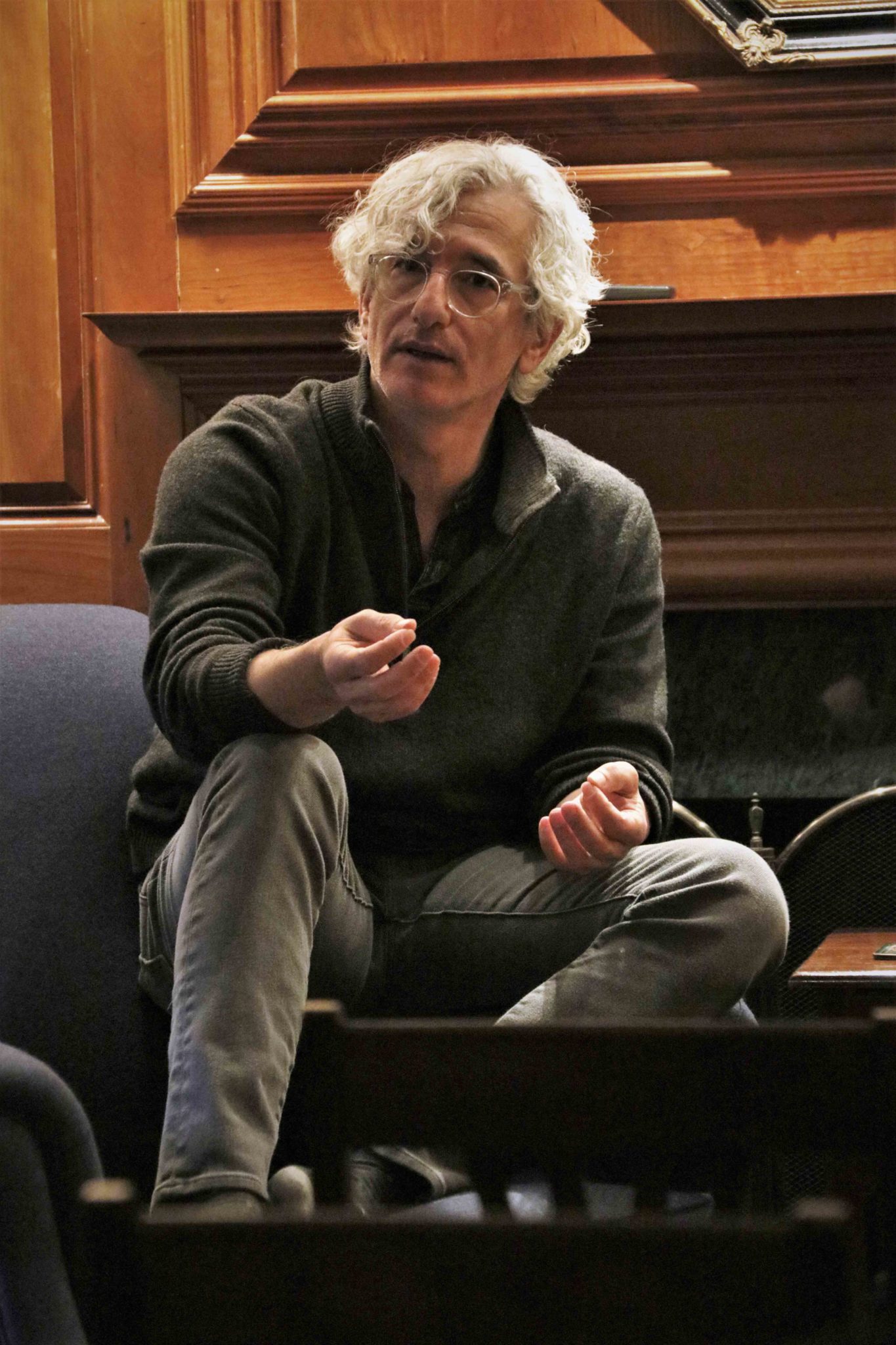
Ed Solomon, an accomplished screenwriter famous for films like “Men in Black” and “Bill and Ted’s Excellent Adventure,” has forged a successful career in the world of film. At a Saybrook College tea Monday afternoon, Solomon spoke about the struggle of making it in Hollywood.
Speaking before a group of about 40 students, many of whom told the News that they hope to make it in Hollywood after they graduate, Solomon aimed to dispel three major myths of screenwriting. The first, he said, is that passion is integral to the creative process. Solomon argued that a screenwriter need not be passionate about the topic about which she is writing — just interested in it.
“The act of pursuing interest creates something deeper than passion: love, intimacy,” he explained.
He also claimed that interest is more important than inspiration, saying that inspiration is “the refuge of the procrastinator.” He urged students not to wait around for a brilliant idea to present itself.
The third misconception Solomon sought to clarify was the role of drugs in the creative process. Solomon spoke of his own experiences with stimulants and writing, asserting that they only degraded the quality of his work. He warned against drugs such as marijuana and Adderall, and he encouraged meditation for “stress, focus and writing.”
Aaron Tracy, who teaches “The Art of TV Drama” in Yale College, invited Solomon to campus and moderated the discussion on Monday. In addition to leading the tea, Solomon, who also co-wrote “Now You See Me,” among other films, will participate in Tracy’s podcast, “To Live & Dialogue in LA.”
Although Solomon has found success in the world of film, he emphasized that making it in Hollywood is not a cakewalk. In fact, he said that failure, not success, is the norm in the movie world.
“The demarcations of what we call success are so few and far between. It’s almost always failure,” he said. “My goal is to just be hired one more time than I’m fired.”
He spoke of getting fired and rehired for “Men in Black” as evidence that even long-term successes include short-term failures.
To cope with the industry’s constant criticism, he distances himself from result and focuses on the work in front of him. He acknowledged, however, that it can be tough to do so.
“You put yourself through an artistic process, but what you create is ultimately a blueprint for someone else,” he said.
Solomon made clear that the determining factor of success in screenwriting is hard work, not talent.
Yale students in attendance seemed to hold to this message. Tereza Podhajska ’21, who is interested in screenwriting, said that the tea offered “reassurance that what I’m doing is not out of the norm — what matters is perseverance.”
TJ Noel-Sullivan ’20, the cinematographer of the 2017 Yale Symphony Orchestra Halloween Show silent film, said that the tea did not discourage him in his career pursuits.
“My main takeaway was that it’s about hard work,” he said. “You have to really want it.”
Lindsay Daugherty | lindsay.daugherty@yale.edu







